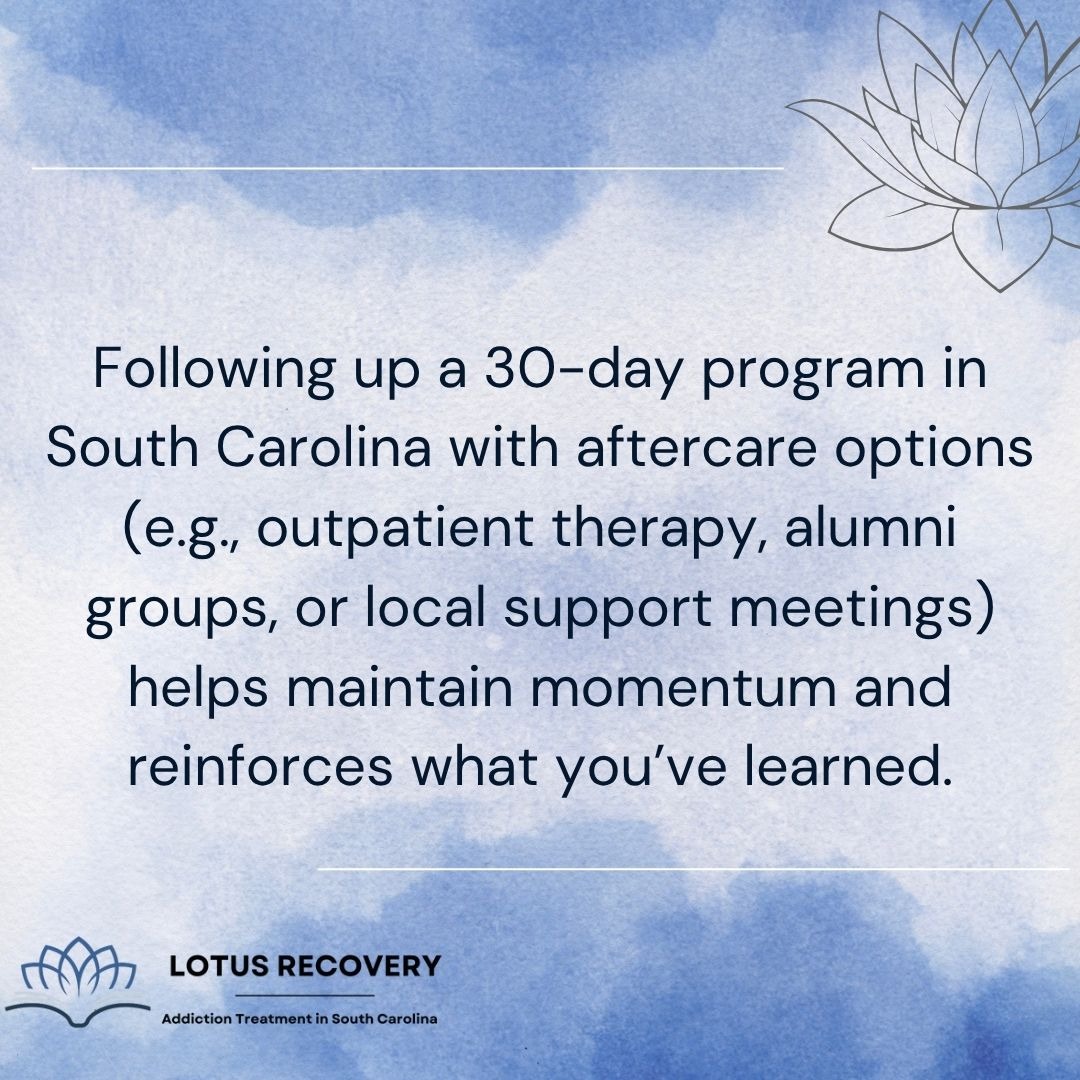
Explore 30 day rehab programs and learn their structure, benefits, and limitations. Discover how program length and aftercare can impact your recovery.
So, you’ve heard about 30 day rehab programs. But can a month really make a difference in recovery?
When it comes to overcoming addiction, the length of treatment can spark a lot of debate. Some people swear by short-term programs, while others argue that longer stays provide the structure and support needed for lasting change.
If you’re exploring South Carolina addiction treatment options, you’ll quickly notice that programs vary widely not just in length, but in approach, intensity, and aftercare support. From intensive outpatient programs to residential stays, the choices can feel overwhelming.
In this article, we’ll break down how effective 30-day rehab programs really are, what factors influence your recovery, and what alternative program lengths could look like. By the end, you’ll have a clearer picture of which path might suit your journey best.

First, let’s discuss how 30 day drug rehab programs work.
Note that while every facility has its own approach, most programs share a few key components designed to support your recovery from multiple angles.
The first step in many programs is medically supervised detox. This ensures that withdrawal symptoms are managed safely, reducing risk and helping you start your recovery with a clean slate. Even in a short program, having professionals monitor your health can substantially help you improve your recovery journey.
Therapy is the backbone of any rehab program. Individual counseling helps you explore the root causes of addiction, while group sessions give you a space to share experiences and learn from others facing similar challenges. Cognitive-behavioral therapy (CBT) and other evidence-based methods are often part of the mix.
Thirty days gives you time to establish daily routines that support sobriety. Structured schedules (including meals, therapy sessions, exercise, and reflection periods) help create stability, which is crucial in early recovery.
Even the best South Carolina addiction treatment programs can’t guarantee the same results for everyone. Recovery is personal, and several factors influence how much progress you can realistically make in 30 days.

A 30-day program in South Carolina can be a powerful first step toward recovery, but it’s not a one-size-fits-all solution. Understanding both the advantages and limitations helps you decide if it’s the right fit for your situation.
A 30-day program offers quick immersion into treatment and a structured environment where you can focus entirely on recovery. You get immediate support from professionals and peers, helping you establish early coping strategies. Key benefits include:
While a month can jump-start recovery, it may not provide enough time for people with severe addiction or complex behavioral patterns to fully address long-term habits. Some challenges you might face include:
Need more comprehensive care? This is where options like 90 day rehab programs come into the picture. Offering a deeper level of treatment, longer stays allow for extended therapy, more thorough skill-building, and gradual reintegration into daily life. The additional time can increase the chances of lasting recovery, especially for those with long-term or severe addictions.

Even in a condensed timeframe, you can make meaningful progress if you approach 30 day rehab programs with intention and focus. Here are some ways to get the most out of a short-term stay:
The value of a program depends largely on how actively you participate. Attend every session, be open in individual counseling, and contribute to group discussions. The more you engage, the faster you’ll absorb strategies for managing triggers and reshaping habits.
Recovery doesn’t end when the program does. Following up a 30-day program South Carolina with aftercare options (e.g., outpatient therapy, alumni groups, or local support meetings) helps maintain momentum and reinforces what you’ve learned. Regular check-ins can significantly reduce the risk of relapse.
A short-term program is most effective when it equips you with practical tools. Focus on identifying triggers, practicing stress management, and developing daily routines that support sobriety. Strengthening these skills early sets a foundation for long-term recovery, no matter the program length.
When exploring South Carolina addiction treatment, it’s important to remember that a 30-day program is just one piece of the recovery puzzle. Some individuals may benefit from extended or alternative care to ensure lasting results.
For high-risk or chronic addiction, 90 day rehab programs often provide more comprehensive support. Extended stays allow for deeper therapy, more practice with coping strategies, and gradual reintegration into daily life, improving long-term outcomes for those who need it.
Not everyone requires a full residential program from a rehab center. Partial hospitalization or intensive outpatient programs can provide ongoing support while allowing you to live at home. These options often include therapy, medical oversight, and group sessions to maintain progress after an initial rehab stay.
Many people find that starting with a 30-day program and then transitioning into outpatient therapy, support groups, or other aftercare services is the most practical approach. Combining short-term immersion with continued care gives you the structure, skills, and ongoing accountability necessary for long-term recovery.

Indeed, 30 day rehab programs can provide a strong starting point for recovery, offering structure, therapy, and immediate support. For some, a month is enough to jump-start sobriety, build coping skills, and gain valuable insight into their addiction. However, recovery is highly individual. Note that those with more severe or long-term addiction often benefit from longer stays or continued care to maintain lasting results.
If you’re considering your options, Lotus Recovery offers tailored programs that combine the intensity of short-term rehab with ongoing support to help you stay on track. Contact our team now!

Reviewer
Henna is a content strategist with over 5 years of experience in behavioral health marketing. She specializes in creating informed, compassionate content for addiction treatment centers, using her deep understanding of the industry to educate, engage, and support individuals seeking recovery.